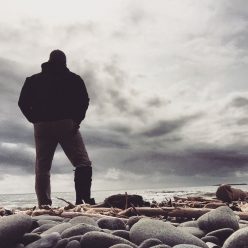This program course work will be centered on the process of salmon commodification, and its harmful consequences to the earth, food systems, and the environment. Specific course work will focus on the Chinook Salmon restoration efforts of different organizations working within the Nisqually River and the Nisqually River Watershed, and how these efforts are made difficult through the commodification of Salmon.
My Field Supervisor will be Sheila Wilson her email is sheila@nisquallyriver.org
| To Learn the process of fisheries and ocean commodification in relation to the Salmon fisheries industry. | I will read and review The Tragedy of the Commodity: Oceans, Fisheries, and Aquaculture by Stefano B. Longo, Rebecca Clausen, and Brett Clark; and selected passages from International Agreements on Conservation of Marine Resources by Jozo Tomasevich. | The sponsor will review annotated bibliography, which inclueds each books theme, review, and usefulness to students project. |
| Students will design and then engage with an individual or group project that explores an area of student interest regarding commodification processes and alternatives. Everything from eating to voting, from learning to (re)producing are possible topics, the commodification of what we all eat will provide a foundation for weekly seminars and a tasting lab | I will participate in a weekly Tuesday seminar class. I will be present every Tuesday and participate in the programs activities. I will engage with my peers though tasting labs in weeks 1, 3, 5, and 9; and participate in seminar discussions. I will read program assigned books: The Secret Financial Life of Food: From Commodities Markets to Supermarkets by Kara Newman, Racial Indigestion: Eating Bodies in the 19th Century by Kyla Tompkins, and Chronicles: Stories from the Front Line in the Battle for Environmental Justice by Winona LaDuke. | The sponsor will evaluate weekly Pre-Seminar write ups, participation in seminars, and end of quarter presentation. |
| To learn how the commodification of Chinook Salmon has driven the species to threatened status on the Nisqually River. | I will interview various people working as state biologist, tribal biologist, hydrologist, restoration technicians, and non-profits working toward the recovery of wild Chinook Salmon on the Nisqually River. | The sponsor will evaluate students WordPress posts and blog entries, looking for unified themes centered around Salmon Commodification. |
| To learn how an Environmental Education nonprofit operates. To gain hands on experience in the areas of collaboration with teachers, students, and other nonprofits in the Olympia area. | I will participate in all of Nisqually River Education Projects activities. I will collaborate with teachers at different schools in the Nisqually watershed, and with Nisqually River Foundation. Activities include in class presentations, Salmon Toss activity, Student GREEN Congress, and Eye on Nature. All of these are activities will directly lead or co-lead with me. | The sponsor will evaluate students hours from working with the Nisqually River Education Project. The sponsor will also evaluate the end of quarter performance review the students subcontractor will provide to sponsor. |
